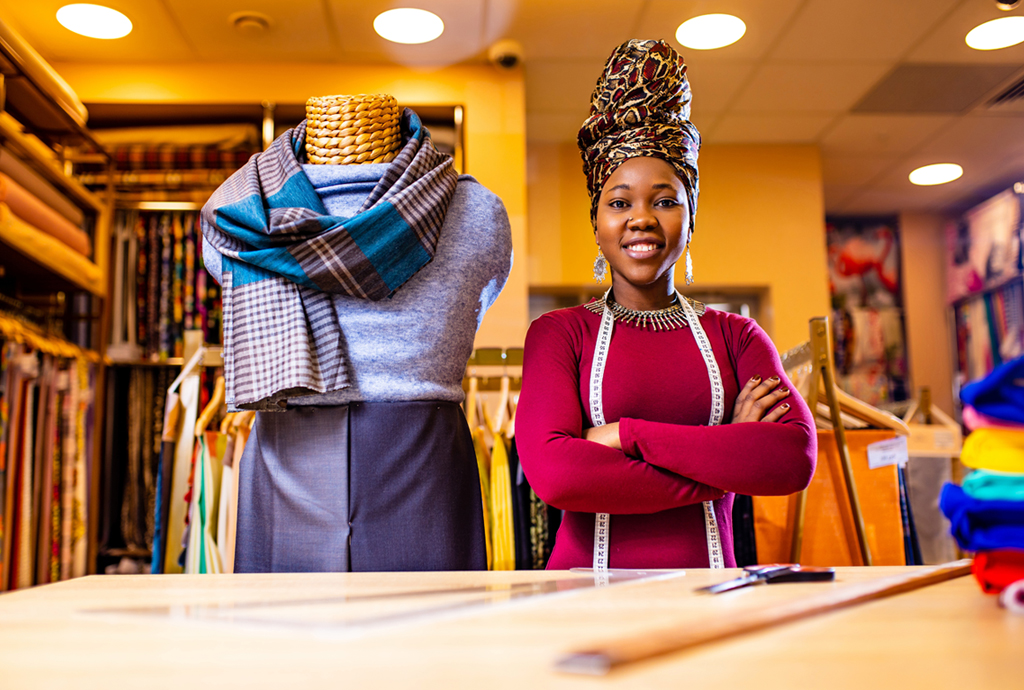My Fashion (Legal) Odyssey: Part 5
Why Fashion Brands and Companies Succeed and Why They Fail

Growing and Sustaining the Brand
Having written first about launching a brand, I now turn to growing and sustaining the brand.
In my second article, I wrote about my unsuccessful efforts to convince the Sergio Valente jeans company to reach out to the then unknown Madonna to do television commercials to promote the brand. I am going to talk about Madonna yet again but for an entirely different reason. To my mind, she is a prime example of what it takes to keep a brand, in this case, a personal brand, alive and well. Madonna has done that for forty years when virtually all the others have faded away. How do we account for that longevity? First, talent. But talent is not enough. Having her own special niche and emotional connection to the market and fan base is vital. But being able to change, and stay at once fresh and relevant, but true to her DNA, has also been critical. Fashion brands must be able to go down that road if they are to succeed in the long run.
I am going to share some thoughts about sustaining fashion brands through my take at why some companies and brands I have represented at various times enjoyed long-standing success and why others have not.
Sergio Valente -Long gone. The company made great jeans and had great brand recognition. Like the bar in Cheers, everyone knew its name. I think Sergio went out of business for two reasons. The Hong Kong factory owners and New York merchants that together owned the company ultimately couldn’t get along. The brand also seemed to run out of steam. The company retained a hot advertising agency to come up with a brand refresh plan. I was advised that the ad agency came up with an exciting plan, but that the company chose not to follow through with it.
Though Sergio disappeared, its main competitor, Jordache, continued to thrive even though Sergio, to my mind, made the better product.
Williwear – Long gone. The business was built around the design and marketing genius of Willi Smith. After Willi died, his talented partner, Laurie Mallet, carried on the business with a team of business and creative talent, the likes of which have never been seen before or since in a company of this size: In addition to Laurie, Om Batheja, Mindy Grossman, Andrew Grossman, Mark Bozek, and at various times James Mischka and John Bartlett. If you don’t know who they are, look them up. Despite all that talent, the company disappeared a few years after Willi’s death. Apparently, this great team couldn’t sustain his magic.
Nicole Miller – A huge, long-term success. The fashion equivalent of Madonna. The business marriage of a supremely talented designer with Bud Konheim, a legendary business operator counterpart. I recently asked Nicole what she thought accounted for her long-term success (apart from talent and the aforementioned business marriage). Her response echoed my thoughts — being open and adaptive to change while being true to your DNA.
I am going to coin a new phrase for this process – Gentle Reinvention.
FUBU – Still out there in a reinvented form that is very different from the exciting years of its heyday. In my third article, I recounted how I came to represent FUBU in its license agreements all over the world and in its many co-branding deals. FUBU had a great, multi-talented, visionary team behind it. And it created a strong, emotional connection with its customers. Daymond John, FUBU’s founder and Shark Tank star, has written that its business closure was principally the result of two factors, excessive inventory and spending. Although I am sure those factors played a role in its long-ago closure, I believe that picture is incomplete. I believe three other factors played significant roles in its downturn.
- LL Cool J, the long-time celebrity face of the brand, decided to end that role. The brand had the opportunity to replace him with an up-and-coming hip-hop super star. It chose not to do so.
- FUBU became faced with strong competition from many other urban brands, including Rocawear, which was fronted by Jay Z.
- Excessive co-branding and the launch of a FUBU Platinum line taken together said to the consumer that the brand could not stand on its own.
I am so glad that the FUBU family has gone on to many great subsequent successes.
One Step Up Group -Still thriving. This moderate ladies apparel company was founded and is still run by Harry Adjmi, a pillar of the Sephardic Jewish community, and one of the smartest people I know. Harry is a hands-on manager and intimately involved in every aspect of the company’s business. The company has always been run with the long term in mind. Harry has never been afraid to recognize the talent of young people and to elevate them when deserved positions of substantial responsibility in the company. In handling a deal for this company, I learned about an important factor in making money in the moderate sector where margins are often small — the money is often made on the buy side of the process — sourcing products well and economically. One Step Up has done just that. And most importantly, it has treated its employees, customers, and suppliers honestly and ethically, traits sometimes not given sufficient attention.
It is good to end on a positive note. I am always pleased to see how many young people continue to come into the industry and bring with them their energy and talents.
Meet the Author
Charles Klein, Esq. Charles Klein is a partner and chair of the Fashion Law Group of Davidoff Hutcher & Citron LLP, a mid-size, midtown Manhattan law firm. DHC has been helping clients solve challenging problems since 1975.
Although he handles a wide variety of business law matters for clients, Mr. Klein’s practice is particularly focused on the fashion, accessories, and home industries, where he helps his clients build their businesses, obtain protection for their intellectual property, protect their brand assets, and negotiate their license agreements and other contracts.




